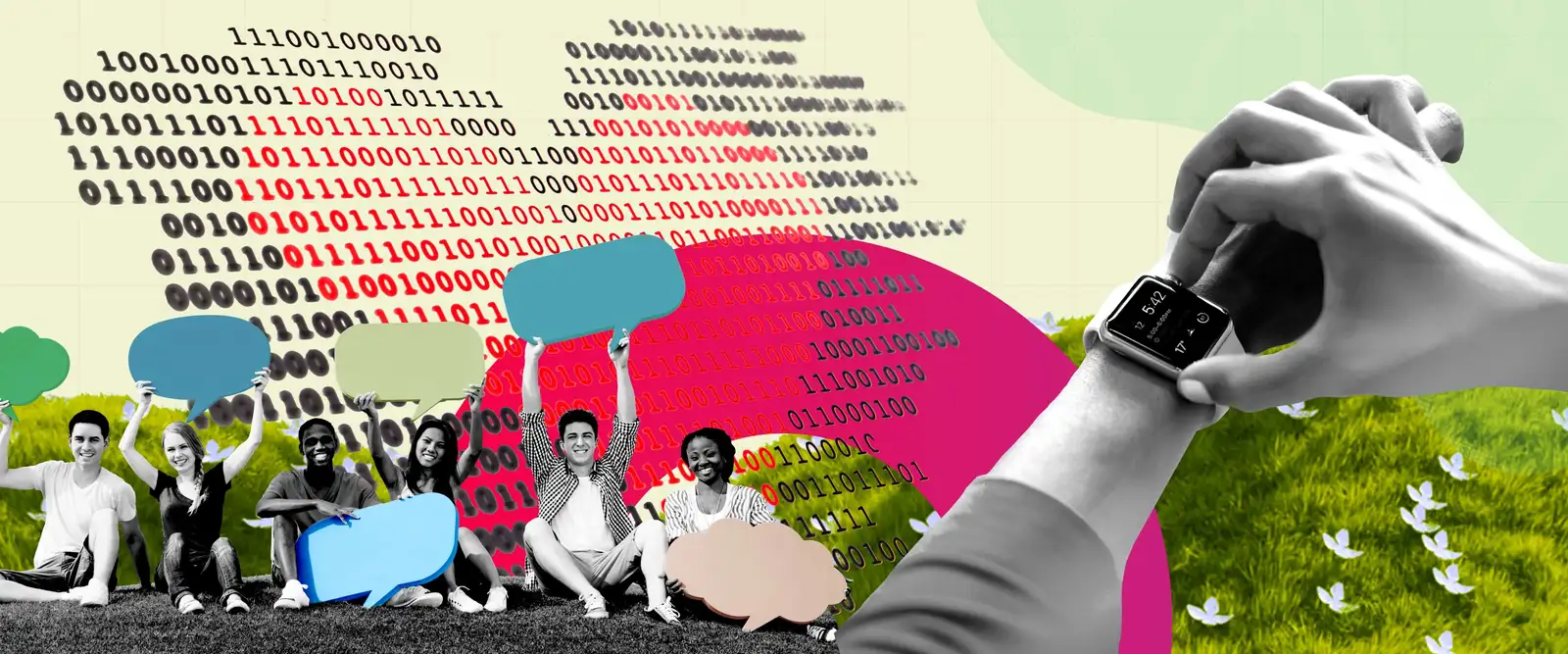This essay is part of a special collection of youth authored essays written by DTH-Lab’s Regional Youth Champions (2023-2024). The full collection of essays can be found here in the partnering document of the global interim report on Building a blueprint for digital first health systems: Findings from global youth consultations.
Digital first health systems will revolutionize the way our healthcare system works. This revolution will not only be a revolution of technology, systems and efficiency, but most importantly: a knowledge revolution. Digital first health systems designed right, have the incredible potential to serve as catalysts for enhanced health literacy. By placing reliable, high-quality health information at the forefront and actively involving patients in their healthcare journey, these systems can pave the way for a new era of informed well-being.
Empowering individuals to actively engage in their healthcare through clinical support for self-management is a key component. A comprehensive online platform should be created which integrates electronic patient records and provides an overview of upcoming health check-ups, doctor appointments and necessary vaccination boosters. Services like digital prescriptions, online pharmacies, remote consultations and online booking of in-person appointments can contribute to making healthcare management more accessible and convenient. Imaging results such as MRI scans, x-rays and CT images must be easily accessible and transferable to other healthcare providers, fostering collaborative and timely decision-making. Furthermore, digital first health systems have the potential to bridge the gap between complex medical language and patient understanding. Drawing inspiration from platforms like the German website “Was hab’ ich?“, online applications could translate intricate doctor’s letters into understandable words.
Knowledge platforms should extend beyond medical records, offering trustworthy information about disease management, healthy lifestyles and habits. Gamifying aspects of medical treatment, nutrition and exercise planning can make health education engaging and interactive. AI applications trained on reliable sources can address user queries, providing evidence-based information and guidance tailored to individual needs.
Digital first health systems should incorporate monitoring tools for various health parameters. Integration with wearables, such as smartwatches and fitness trackers, enables real-time monitoring of vital signs. Apps monitoring oxygen levels, heart rate and mental health status empower users to actively manage their health. This data can be analysed by AI applications to identify anomalies, prompting automated alerts and suggesting appointments with healthcare professionals when necessary.
Governments play a vital role in this transformation by investing in secure platforms built with a bottom-up approach that considers the diverse needs of society. User-friendly and intuitive design, multilingual support and accessibility features cater to a broad demographic, including marginalized populations. Customization options based on gender, race, age and disabilities should further ensure inclusivity.
As Germany moves towards the mandatory electronic patient record by the end of 2024, it is evident that the evolution of healthcare is underway. While existing applications and initiatives show promise, there is a need for a more centralized approach that addresses the multifaceted aspects of healthcare management.
The knowledge revolution brought about by digital first health systems can be a driving force for empowering individuals, promoting health literacy and fostering a proactive approach to well-being. Governments, healthcare providers and technology developers must collaborate to ensure that these systems are accessible, user-friendly and inclusive, thereby realizing the full potential of a transformed healthcare landscape.
Caroline Knop is a medical student at Charité Berlin with a strong interest in the digital transformation of health. She served as National Public Health Officer of the German Medical Student’s Association 2022/23 and was part of the International Federation of Medical Student’s Associations delegation to the 76th World Health Assembly in Geneva.

© 2025 DTH-Lab. All Rights Reserved.
Global Health | Digital Health | Public Health & Prevention | Meaningful Youth Engagement | Cultural Awareness & Diversity
Caroline Knop is a medical student at Charité Berlin with a strong interest in the digital transformation of health. She served as National Public Health Officer of the German Medical Student’s Association 2022/23 and was part of the International Federation of Medical Student’s Associations delegation to the 76th World Health Assembly in Geneva. As Co-Head of the Youth Side Program on the World Health Summit she advocates for meaningful youth engagement. Passionate about addressing the digital determinants of health, she works together with SATMED, an open access satellite-based eHealth communications platform, providing digital health services to remote, resource-poor areas of emerging and developing countries. As a participant in the International Collaboration and Exchange Program (Columbia ICEP), an international student networking and exchange program partnering over 26 major leading medical universities on 5 continents, she believes that current health challenges need to be addressed by a global approach in collaborative problem solving. Having a strong interest in research she served as Head of Public Relations during the foundation of Berlin Exchange Medicine, the first German student healthcare journal. She is a scholar of the German Academic Scholarship Foundation and has recently joined the Global Digital Health Lab at Charité Berlin.